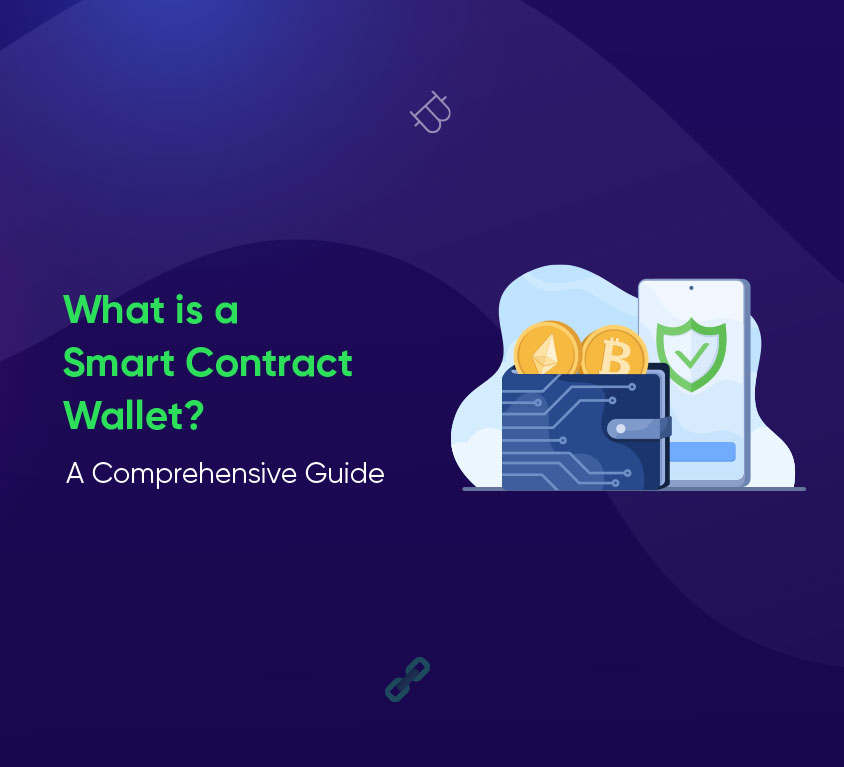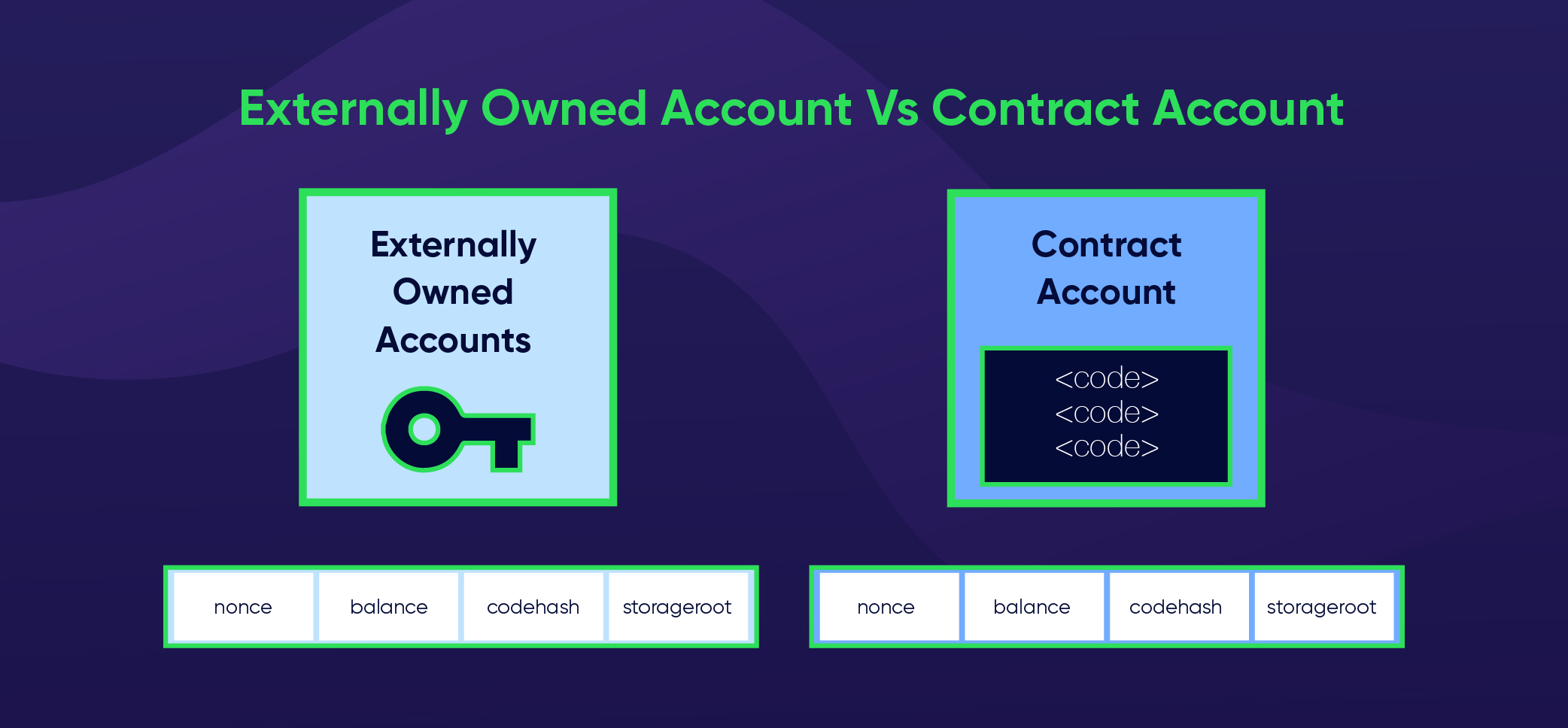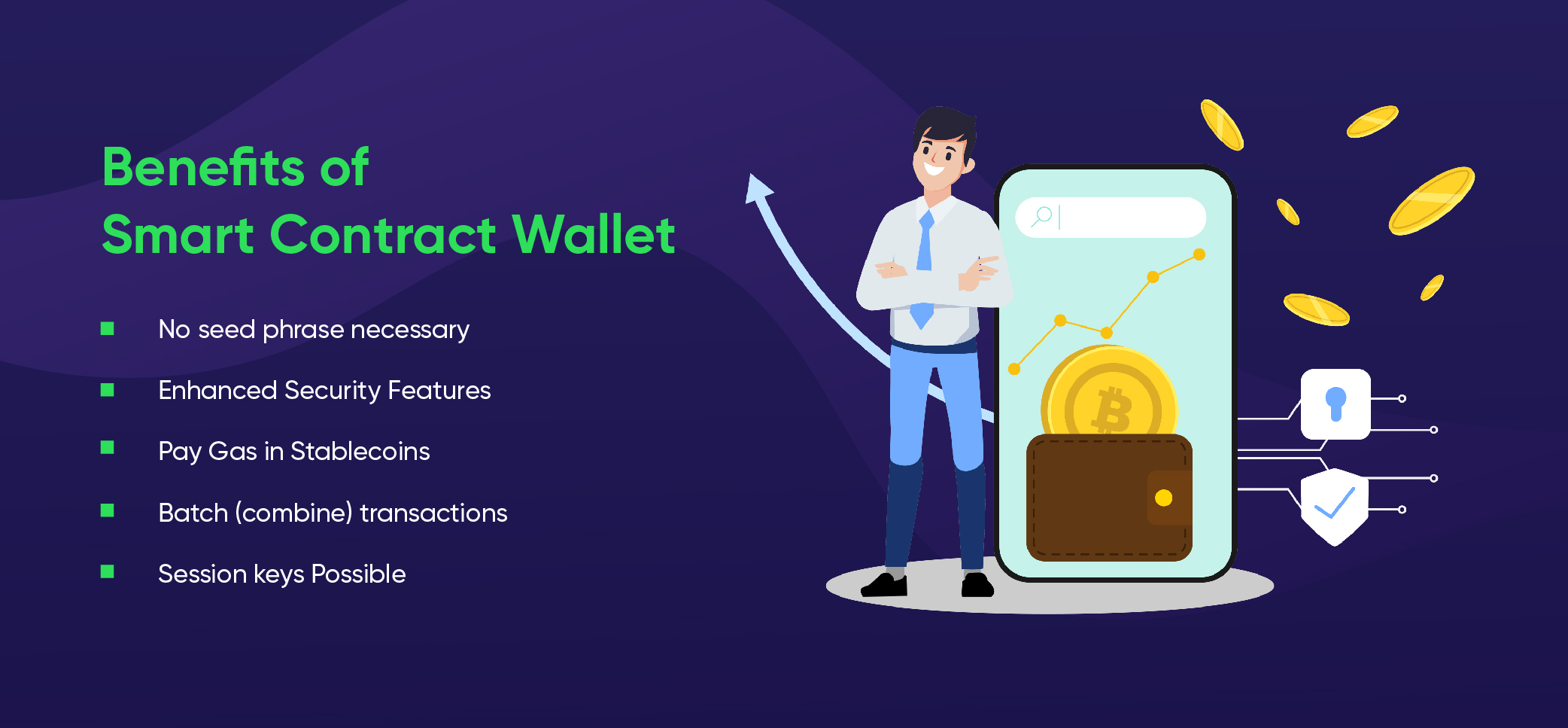
Introduction
Web3 & Blockchain Consultancy :
What is a Smart Contract Wallet? A Comprehensive Guide
Smart contract wallet has recently received a lot of attention. And for good reason: they provide a significantly better user experience, make DeFi more accessible to newcomers, and include previously unavailable functionalities, among other things. This essay will explain what smart contract wallets are, how they work, and what benefits they provide.What are Accounts on Ethereum?
Let’s start with the fundamentals and look at what accounts are on the Ethereum blockchain and the different sorts of accounts. Accounts are monetary entities that can transmit, receive, or approve transactions. They can be user-controlled, referred to as Externally Owned Accounts (EOAs), or deployed as smart contracts, referred to as Contract Accounts.
What is a Smart Contract Wallet?
Smart contract wallets are gaining popularity across several ecosystems (Solana, Ethereum, and others) because of their unique combination of security, flexibility, speed, and ease. Users can utilize smart contract wallets to store cryptocurrencies, NFTs, and access several popular decentralized applications (dApps). One frequent application for smart contract wallets is a safe deposit box for joint cash managed by numerous parties.Does Smart Wallet Really Work?
Smart contract code is used to access and handle the funds in smart contract wallets. Programmable aspects of the smart contract include social recovery, transfer limitations, and account locking/freezing. Users can design and set policy features and controls throughout their transactions in addition to completing transactions. Many smart contract wallets feature multi-signature security, allowing users to add extra users to their wallets who can approve and sign transactions. Two signatures are necessary at a minimum. A trusted user can be a friend, a secondary wallet, or a third party who has the capacity to participate in any actions taken by the wallet owner. As a singer/approver, a trusted user can assist in the recovery of the wallet.What is a Smart Contract?
A smart contract is a digital contract that executes itself based on predefined criteria. It is based on blockchain technology and provides tamper-proof execution without the use of intermediaries. These contracts incorporate terms and obligations, initiating actions automatically when certain criteria are satisfied. They improve security, transparency, and efficiency in a variety of fields, ranging from finance to logistics. Smart contracts minimize the need for manual intervention, which reduces human error and ensures compliance.Types of Smart Contracts:
Smart contracts offer a wide range of uses. Smart contracts can be adjusted to fulfill specific objectives, from minting coins with token contracts to making decisions with governance contracts. However, we will simply look at the most common smart contract kinds today.-
Basic Smart Contracts
At the core of smart contracts, typology lies the basic smart contract. These contracts execute pre-defined terms and conditions once specific conditions are met. They are fundamental building blocks for more intricate contract structures, serving as the foundation upon which more complex agreements can be constructed.
-
Escrow Smart Contracts
Escrow smart contracts engender trust and security in digital transactions. They hold funds or assets until predetermined conditions are fulfilled, at which point the assets are released to the intended recipient. These contracts find wide applications in various industries, including real estate, freelance work, and e-commerce.
-
Multi-Signature Smart Contracts
Multi-signature smart contracts amplify security by requiring multiple parties to authorize a transaction. These contracts are particularly useful in business settings, joint ventures, and scenarios necessitating consensus among stakeholders before executing an action.
-
Self-Amending Smart Contracts
Self-amending smart contracts embody adaptability and evolution. They possess the capability to update their own code, allowing for adjustments to be made based on changing circumstances or improvements. This dynamic nature ensures longevity and relevance in a rapidly evolving digital landscape.
What are the benefits of Smart Contract Wallets?
Smart contract wallets have several benefits over EOA wallets. You’ve probably heard of Account Abstraction (AA). In summary, AA refers to the endeavor to begin employing contract accounts as wallets and to make these wallets native to the blockchain, hence simplifying interaction and enabling various features and benefits. Smart contract development services offer a comprehensive suite of solutions tailored to harness the potential of blockchain technology. These services encompass the creation, deployment, and management of self-executing digital agreements that automate and secure transactions.
-
Enhance Security
Smart contract wallets have several benefits over EOA wallets. You’ve probably heard of Account Abstraction (AA). In summary, AA refers to the endeavor to begin employing contract accounts as wallets and to make these wallets native to the blockchain, hence simplifying interaction and enabling various features and benefits. If you’re interested in learning more about Account Abstraction, you may do so on our blog.
-
Transparent Transactions
Smart Contract Wallets operate inside a decentralized ecosystem, recording every transaction and change on a distributed ledger. This increased transparency fosters accountability and helps users to monitor and verify their financial activity, providing a complete picture of their interactions.
-
Automated Execution
One of the most significant advantages is in the area of automatic execution. When certain requirements are met, Smart Contract Wallets automatically trigger predetermined contractual circumstances. This reduces the need for intermediaries, streamlining operations, and increasing efficiency in areas such as decentralized finance and supply chain management.
-
Seamless Interoperability
Smart Contract Wallets connect effortlessly with a wide range of decentralized apps (DApps). This interoperability crosses traditional barriers, allowing users to participate in a diverse range of financial services and protocols, hence extending prospects and possibilities.
-
Programmable Flexibility
Within Smart Contract Wallets, users possess the power of programmability. They can build and implement bespoke smart contracts, allowing them to orchestrate complex financial agreements without the use of intermediaries. This enables individuals to create solutions that are exactly tailored to their needs.
-
Inclusive Access
Smart Contract Wallets make financial services more accessible to everyone. They eliminate geographical and financial boundaries, allowing worldwide involvement in the decentralized economy. Individuals benefit from this inclusivity regardless of their background or geography.
-
Session Keys Possible
You can define (and pre-approve) rules for dealing with a particular dApp. Then you can use the dApp without needing to sign any further transactions. Sessions can be defined in various ways, such as a time period or a certain transaction volume. This is critical for increasing the gaming experience, for example, but yet ensuring your assets are safe because you set the restrictions yourself.